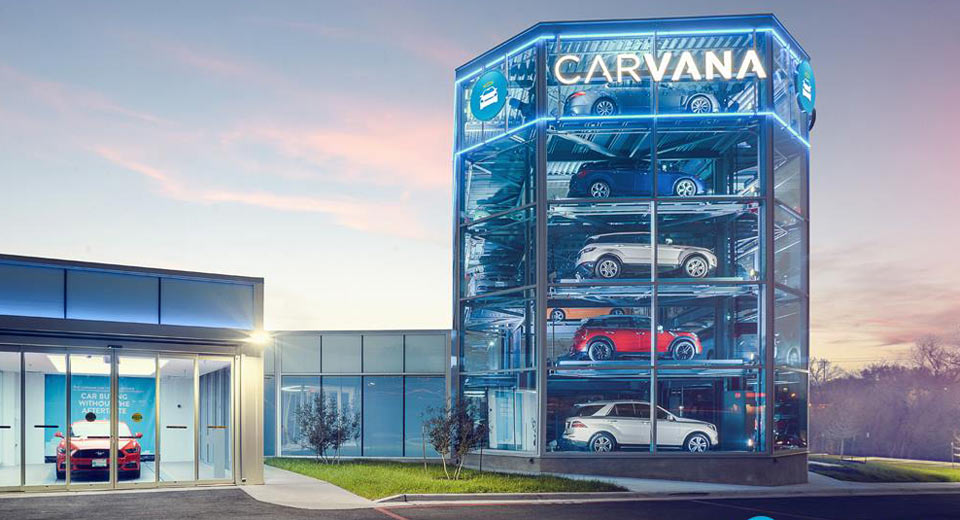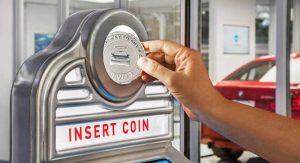There are few professions with quite the reputation for dishonesty as used-car salesmen. Fortunately there are new companies springing up that aim to make the process more pleasant and transparent. But before you put your trust in one of them in particular, Bloomberg has some words of warning.
That company is Carvana, which has been garnering a fair share of attention through its giant car vending machines popping up across the southern United States.
With locations in 27 cities and an inventory of over 7,000 vehicles, Carvana promises to undercut the competition by hundreds or even thousands of dollars below Blue Book prices – whether you collect from one of those oversized novelty vending machines (in locations like Atlanta, Nashville, and across Texas) or have your certified pre-owned vehicle delivered right to your door.
Carvana’s expansion has been fueled by nearly half a billion dollars in raised funding and then by an initial public offering on the New York Stock Exchange. And out of ten Wall Street analysts covering the stock, nine rate it as a “buy” – but eight of those are from the same financial institutions (like Merrill Lynch, Citigroup, Deutsche Bank, and Wells Fargo) that underwrote the public offering in the first place, which calls their objectivity into some question.
But the bigger concern, to read Bloomberg‘s account, is who’s behind the company. Its largest shareholder is one Ernest Garcia II, an individual previously convicted of savings-and-loan fraud in the early 1990s. His son, Ernie Garcia III, serves as the company’s CEO. And the venture was spun off from (and continues to work closely with) the DriveTime Automotive Group, whose CEO Raymond Fidel was convicted alongside the elder Garcia in the Lincoln Savings and Loan scandal.
“A controlling shareholder having a fraud conviction is of interest to other shareholders,” corporate law professor John Coffee of Columbia University told Bloomberg. “I think a company doing a public offering should disclose this factor,” he said, even if it’s not legally required to do so.
That may give investors cause to pause before putting their money (or their clients’) into a company controlled by individuals with questionable backgrounds – especially considering how central financing is to Carvana’s business model. Whether any of that should keep you from considering buying a car from Carvana, however, is a decision only the individual customer can make. Watch the giant vending machine in action in the 31-second video below.









